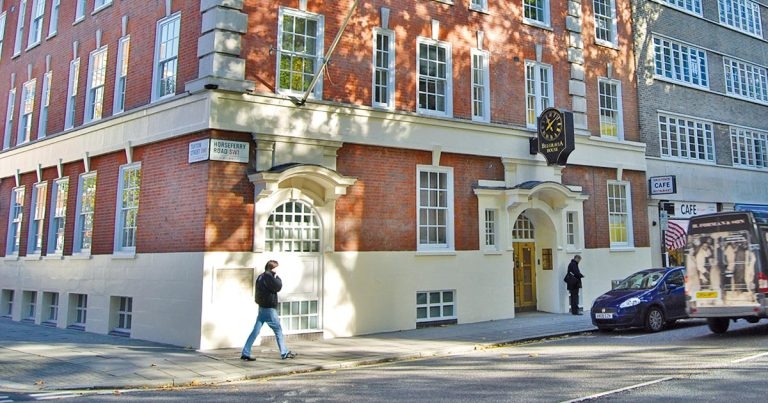31 Mar 2021
College agrees sale of London HQ to private investor, but will lease back the building for up to two years until new premises can be found.

Belgravia House in London.
The RCVS has voted to sell its central London headquarters for £14 million to a private investor.
Belgravia House, in the heart of Westminster, has been the home of the college and more than 100 of its staff since 1995, but the imposing six-storey building has been empty for the past 12 months due to coronavirus restrictions.
The decision to sell the building in Horseferry Road and move elsewhere pre-dates the COVID-19 pandemic, however, with RCVS council voting to sell the building back in 2018 as the building had become “unfit for purpose”.
Despite agreeing the sale, the deal includes an option for the RCVS to lease back the building for up to two years to allow time for council to consider the future building requirements of the organisation, and how these may have changed following the coronavirus pandemic.
RCVS treasurer Susan Dawson said: “Council recognised that this deal realised maximum value for the building, especially considering the impact the pandemic has had on property prices in central London.
“It also provides a very valuable opportunity to reflect on the changing needs of the organisation and the professions and public it serves, and to consider the requirements and different working patterns of the college staff going forwards.”
The college believes the number of staff working from home will increase following the pandemic, so the need for pure desk space may not be as great as had been planned for the 10 to 15 years ahead.
Prof Dawson added: “However, the importance of in-person meetings for collaboration, creativity and the maintenance of good corporate culture is not to be underestimated, so our new requirements are likely to be different to that anticipated back in 2018.”
By early June, the college expects to be able to welcome limited numbers of staff to return to the office in a safe and socially distanced way, which will include the provision of facilities for hybrid meetings.
The changes to working patterns will also help it inform decisions around future remote working policies and, in turn, the type and size of building that will best suit the future needs of the college and its workforce.